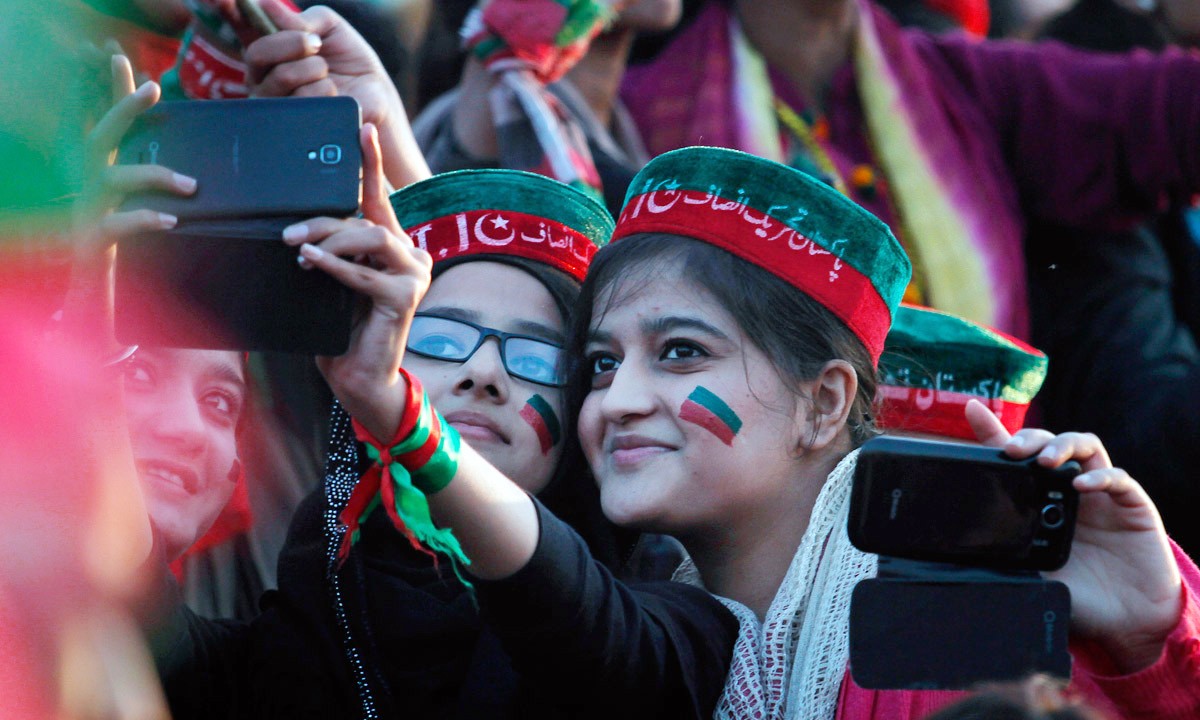

Tis the season of protests, marches and calls for shut-downs. Now that the PTI led-dharna is, hopefully, entering its final phase--the plans C and D give reason to hope so--we can expect little constructive discourse on the political front. The upcoming hearings before the Honourable Supreme Court regarding the incumbent Prime Minister’s qualification to hold office have excited some quarters. But the Federation is likely to have its legal arguments prepared and sound ones at that.
Mr. Khan is now essentially banking on the next election. His only hope of displacing the current administration is through an extra and/or unconstitutional development. That too will not be easy keeping in view the pressure that the PML-N led governments in the Punjab and Islamabad have already sustained.
While political agitation does have its benefits there is the danger that PTI’s support base may suffer from ‘protest fatigue’ come the next elections. So far we have not seen any real policy advocacy by PTI, except the usual rants against a corrupt system. Now if Mr. Khan does want a decent showing in the next election he would be well advised to ask his party to focus on governance in KPK rather than continuing with pointing out all that is wrong with the current system. The PML-N is no naïve child that will, come election time, sit back and just respond to criticism. It will actually pick up on all the broken promises by PTI for KPK. Once that assault comes, it will not be easy for PTI to respond--since their own politics has been based largely on agitation.
Overplaying his hand is something we are beginning to associate with Mr. Khan. In fact PTI as a political party has made allegedly fewer mistakes not because it is smarter than the rest but because it has not been around for as long as the others. Its principal relevance in recent times has been as a social pressure group, not as a political party: celebrating a handicapped people’s day and a children’s day. These are important issues and are of significance in highlighting the plight of marginalised groups in society but they do not advance PTI’s current principal political aim: being seen as a political alternative to the current administration.
In a country plagued with uncertainty, Mr. Khan’s current political stance serves no one except his own vested interests. All along he has underestimated the street power of the PML-N and its political allies. If he does not stop pushing the government, the government will come under immense pressure from its members and allies to respond through PML-N’s own show of political power. It is commendable that so far the PML-N, after an initial knee-jerk reaction, has restrained itself from a direct confrontation with its political rivals. This patience, however, could run out. And once that happens, this country will be condemned to even more political chaos than we currently face.
The PTI cannot be taken as a serious political party only on the basis of ‘negative’ claims. It must do something positive as well to support its standing--other than Mr. Khan’s personal charisma for his support base. There are questions that are brewing in KPK, not the least of which concern the security and education policies affecting that province. There is good reason to suspect that both have been largely regressive. But these questions will come home to roost. The PTI cannot expect that by adopting a stand that appeases militant extremists, it can later claim that it has tackled the problem of extremism. Its regressive stance on content of curriculum in KPK and backing down from a progressive stance for the sake of political expediency makes it no different from any of its opponents. And if performance is not the standard by which PTI is defining itself then ideology remains the only appealing aspect.
However, since PTI has been so aggressive about its ideology and it sells itself as the ‘quick fix’ party (note: no other party claims the 90 to 100 days solutions PTI loves) the hollowness of its so-called ideology is also coming to the fore. It is a party that, ever since it gained basic prominence in the national political imagination, has been in a hurry--a hurry to make claims, do things, bring down governments. None of that has strengthened its position. In fact, if PTI does not mend its ways it will soon be seen as the party that ‘cried wolf’ and nothing really happened.
A party’s political base does not have unlimited energy, motivation or even resources. That is why all mature political parties focus on political action and agitation in phases--near budget times, at the end of half-term for a government, close to the elections etc. PTI has respected none of this. Some of this may have been commendable, had it been based on principle. But it has been based on political expediency all along. There is nothing wrong with it--except that PTI never admitted so and people started realising this over time.
PTI needs to let this country and its supporters breathe. It needs to realise that it tried bringing down an elected government but failed. It should not risk its own viability and, more importantly, this country’s stability because of its own impatience with the democratic process and its trappings.
Not heeding this advice will result in the worst possible outcome for PTI. This country will trudge along, as it so often does, but the PTI will lose any real prospects of being taken seriously as a party that can actually govern a country.